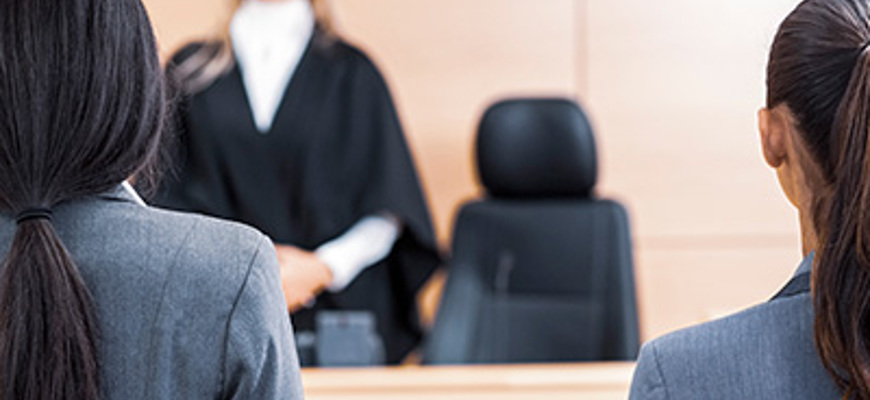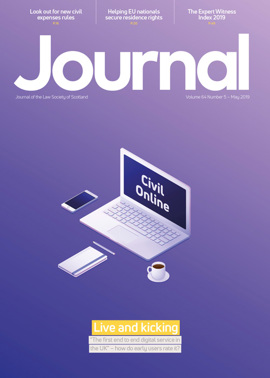Standing up to challenge

To state that expert evidence is often crucial to claims in the Commercial Court is hardly a revelation. Given the potential importance of expert evidence to the outcome of an action, expert witnesses and their opinions are regularly subject to challenge and objection. Three (relatively) recent opinions from the Commercial Court have considered aspects of the expert’s role and duties that have implications beyond the confines of these cases and which provide helpful guidance to practitioners seeking and leading expert witnesses.
Unvouched documents: permissible to refer?
A question considered in Agilisys Ltd v CGI IT UK [2018] CSOH 112 was whether an expert is prohibited from using material not spoken to by a witness to fact. The defender objected to the pursuer’s expert referring in her report to such unvouched documents. Lord Bannatyne considered that experts are entitled to rely on such documents in their evidence, holding that the reference by the expert was in itself sufficient to bring the documents into evidence. Further, he rejected the contention that only little weight should be attached to the evidence of an expert which relies on such documents. It was for the court to assess the expert’s reasoning and the weight to attach to their conclusions in these circumstances.
Ineligible due to previous paid work?
In Ury Estate v BP Exploration Operating Co [2019] CSOH 36 the pursuer challenged the admissibility of the defender’s planning consultant as an expert on the basis that he was not independent and impartial. That charge was made on the basis that the witness had been a “direct actor in the factual issues before the court”.
It was accepted that the witness had acted as a professional adviser and made representations in respect of a planning application, the refusal of which led, ultimately, to the litigation. The challenge to the witness was that he could not fulfil the role of an expert because he had formed his view on the merits in the course of his previous role and before his instruction as an expert. He could not, therefore, demonstrate the necessary impartiality and independence. Lord Bannatyne rejected the argument. In his opinion, the crucial issue was whether the witness’s evidence demonstrated that they had properly understood that their duty to the court was to give independent and impartial assistance to it. The fact that an expert had been a paid adviser to a party did not automatically mean that the witness’s evidence was inadmissible.
What of experts on foreign law?
Ted Jacobs Engineering Group v Morrison [2018] CSOH 51 (affd [2019] CSIH 22) concerned the interpretation of a sale and purchase agreement for a Scottish partnership’s assets in Dubai (thus requiring consideration of the law of the United Arab Emirates as applied in Dubai).
Both parties led experts on foreign law.
A preliminary challenge to one expert’s status as an expert (based on the size of their firm, external appraisal and rights of audience) was rejected – the test being whether the person has the relevant knowledge and experience to give expert evidence.
A question arose as to the court’s role where there is a difference between experts on foreign law and whether one expert’s evidence had strayed into questions only the court could answer. The answer, in summary, is that the function of an expert in construing a contract governed by foreign law is to give evidence as to the rules and principles regarding the law of construction of contracts as a matter of foreign law, with the court then applying these rules and principles to construe the disputed terms in the contract.
The broader picture
It would be a challenge to link the worlds of IT, hotel development and consulting engineering in the three cases mentioned. However, when each dispute became litigious, expert evidence was required.
Each of the court’s decisions produces points of wider consideration on the role and duties of an expert. For solicitors, an expert, appropriately selected, properly instructed and clearly aware of their duties and obligations to the court will be more persuasive than one who becomes an advocate for their client’s case. From experience, the latter expert will seldom find favour with the court, regardless of how expert or qualified they might be.
That they are likely to be the subject of challenge and possible criticism reinforces the need for the expert to be acutely aware of their duty to the court.
In this issue
- Claiming under the advance payment scheme
- Time for a written constitution
- New form F9: worth the wait?
- Wedded to a matrimonial property regime
- Brexit divorce set to increase UK's “skype families”
- Corporate personality: Justice v Doctrine
- Reading for pleasure
- The Law Society of Scotland Expert Witness Index 2019
- Opinion: Judith Robertson
- Book reviews
- Profile: Michael Clancy
- President's column
- Is your legal data being held to ransom?
- People on the move
- Sign up – log in – action!
- Frozen out?
- Taxing times for litigators
- DNA analysis: when research just isn’t enough
- Brexit focus: EU citizen settlement remedies
- Why employers should report on wellbeing
- 3% – and then what?
- 1,000 days of mediation
- Barred from acting
- To name or not to name?
- Enter the “What I Think”
- Fixed penalties and fair trials
- Auto-enrolment: keeping employers on their toes
- Scottish Solicitors' Discipline Tribunal
- Vulnerable accused: a need for knowledge
- Burdens and who can enforce them
- Convener’s final bow
- Public policy highlights
- TCSP review update
- Westminster: answering the call
- Accredited paralegal practice area highlight: family law
- Accredited Paralegal Committee profile
- Nyona named star paralegal
- Ask Ash
- Moving nightmares part 2
- Complaints: seeking consistent practice
- Morally bankrupt?
- For the elderly: how SFE works
- Standing up to challenge






